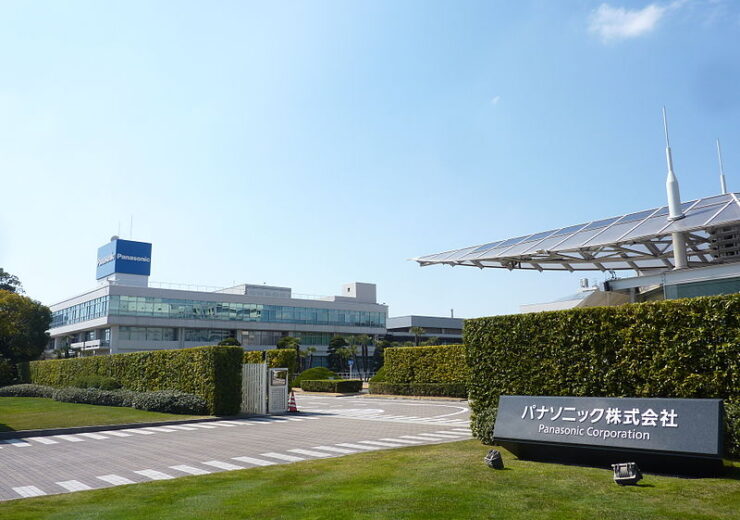The Japanese conglomerate will invest $3.26bn in the automotive battery area, supply chain software area, and air quality and air-conditioning area, while the remaining investment will be towards its groupwide technology pillars

Panasonic headquarters in Kadoma-shi, Osaka, Japan. (Credit: Pokarin/Wikimedia Commons)
Panasonic revealed plans to inject JPY600bn ($4.9bn) in growth areas such as electric vehicle (EV) batteries, supply chain software, and technology from fiscal 2023 to 2025 to achieve its future goals.
The Japanese conglomerate has allocated an investment of JPY400bn ($3.26bn) for the automotive battery area, supply chain software area, and air quality and air-conditioning area.
Panasonic will invest the remaining JPY200bn ($1.63bn) in its groupwide technology pillars that include hydrogen energy and cyber-physical system (CPS).
The Japanese group also disclosed its ambition to reduce the impact of more than 300 million tons of CO2. These make up nearly 1% of total global emissions as of today by the year 2050, based on data from International Energy Agency (IEA).
The conglomerate also announced that Panasonic Automotive Systems has begun operations as a new company via a restructuring executed as part of its transition to a holding company structure.
Panasonic Automotive Systems will be engaged in developing, manufacturing, and selling in-vehicle cockpit systems, advanced driver assistance systems (ADAS) and related devices, on-board chargers, systems and devices for xEVs, and others.
Last month, Japanese public broadcaster NHK reported that Panasonic is planning to buy land in the US to establish a mega-factory for manufacturing a new kind of EV battery for Tesla. The factory could involve an investment of several billion dollars and is likely to be built in Oklahoma or Kansas near Texas, where Tesla is planning to build a new EV plant.
In April 2021, Panasonic signed a deal worth $5.6bn to acquire the remaining 80% stake in US-based supply chain software company Blue Yonder. The deal, which closed last September, was taken up to expedite the shared vision of Panasonic’s and Blue Yonder’s for an autonomous supply chain.


